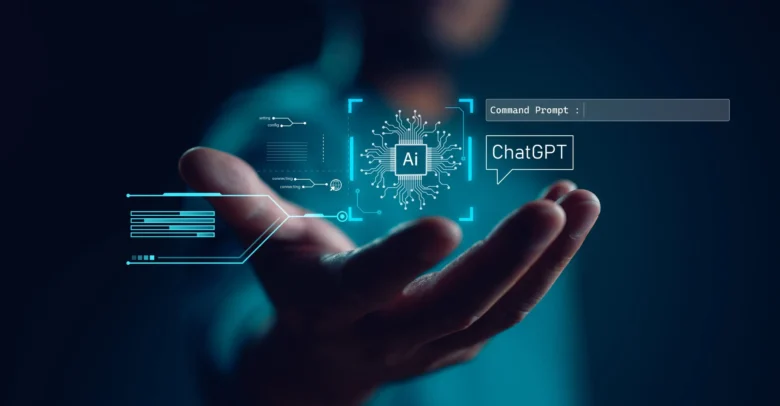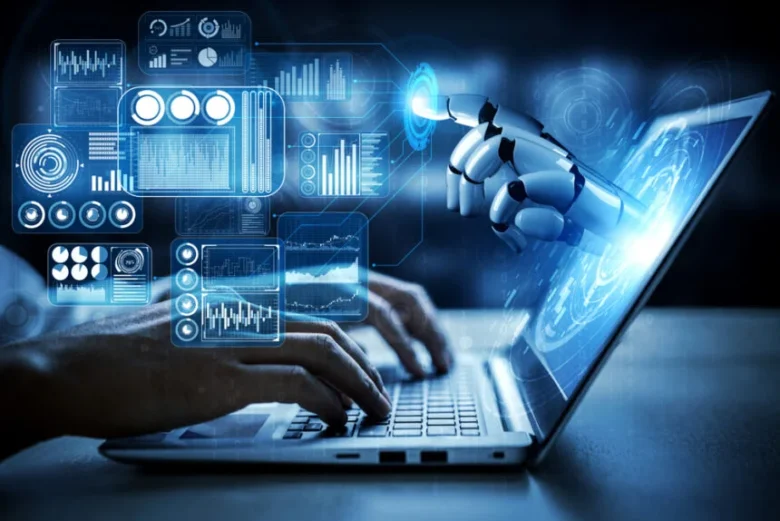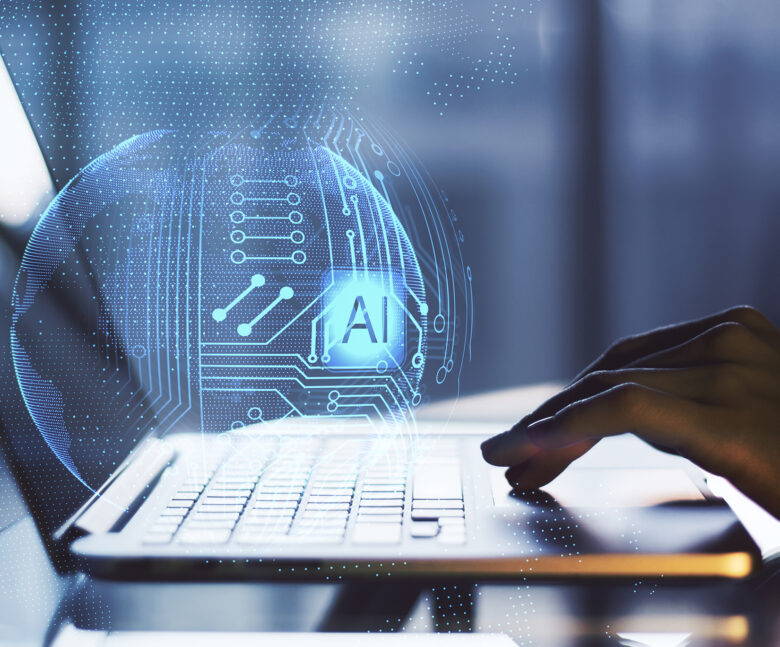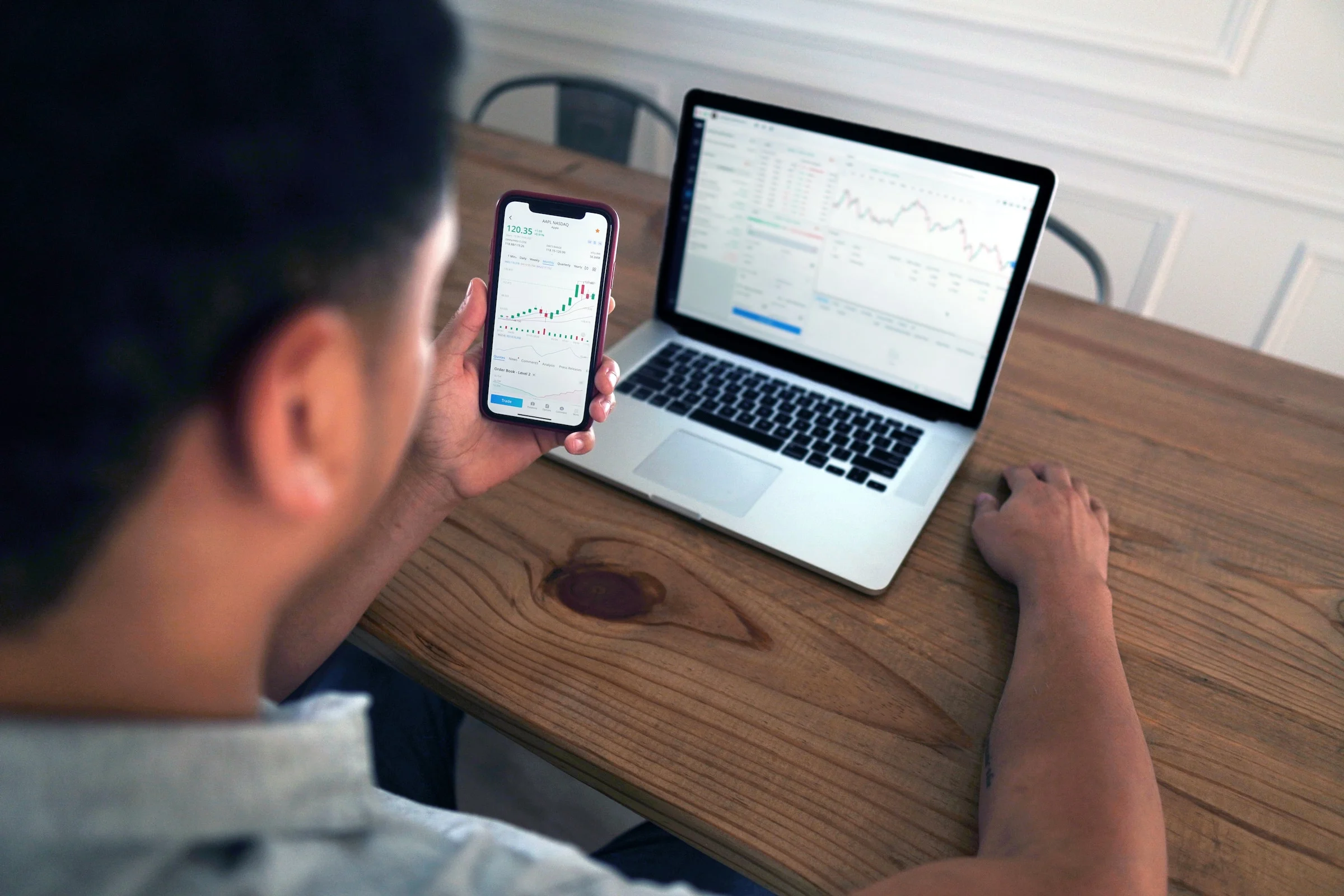On the quest for superior conversion rates? Consider using AI to propel your PPC campaigns to new heights. By utilizing it, tailored ads can be crafted on an individual level. Each user’s experience is unique yet highly relevant to their search intent or browsing habits. This increases the likelihood of making a sale significantly!
Revitalizing digital marketing strategies through this personalized approach reduces wasteful ad expenditure.
Understanding AI and PPC

Imagine enhancing your PPC campaigns with the power of AI. AI can significantly boost the effectiveness of your personalized PPC efforts. Incorporating it into advertising means you can test ads quicker and pinpoint subtle patterns missed by human analysis.
Also, dynamic ad adjustments become a breeze as vast amounts of data are analyzed in real-time for bidding strategy changes. Notably, A/B testing and creative experimentation make campaign optimization speedy due to efficiency gains from AI integration. This is because AI algorithms are incredibly adept at identifying complex trends within PPC data, offering insights that can otherwise be overlooked by us humans.
Businesses can experience enhanced targeting precision and increased ROI due to AI-driven software, which has the ability to optimize ad creatives and bidding strategies in real-time.
Personalizing search marketing initiatives or designing custom audience segments for retargeting purposes can be done more efficiently, and these activities can lead to increased conversions. Ultimately, this will make every dollar count!
Designing Your Target Audience
Creating a targeted audience strategy is essential in crafting successful PPC campaigns. You may wonder who your customers truly are as you tailor these efforts. Start by looking at the data available through Google Analytics, or examine your customer relationship management (CRM) details if accessible. Observing consumer patterns can offer profound insights into their buying habits and preferences.
Does most of your traffic come from mobile users? If so, optimize for this channel primarily to increase conversions while decreasing cost per action. Learn about demographics that engage with your website often; this information helps shape potent marketing strategies tailored uniquely to them. Craft ad copy in line with what resonates well amongst these demographics.
Are they younger viewers appreciating charm and humor? Or are older shoppers seeking simple yet thorough product descriptions? Experimentation is also key here. Regularly alter keywords or campaign structure based on observed results until fine-tuning matches envisioned goals perfectly!
Henceforth, use AI tools. They smartly analyze collected information over time, which enhances success rates amidst continuously morphing digital landscapes!
Machine Learning for Optimization

In the realm of PPC campaigns, machine learning opens a new avenue. It allows for more than just data analysis; it creates scope to hone advertising strategies. Algorithms identify patterns in user behavior that elude human detection.
Think of every click or pause on an ad as raw information fragments. These get transformed into comprehensible insights through machine learning. ML tools analyze these pieces quickly and efficiently while identifying valuable trends. Using these insights, you can tweak your ads to better resonate with consumers’ needs. That’s not all; ML also helps predict future consumer behaviors based on historical data!
Remember those moments when you felt overwhelmed by vast amounts of campaign details?
With precise forecasting from machine learning models, you no longer need to worry about this challenge! Moreover, bid optimization is another fantastic perk that comes along with using ML in your PPC strategy: Dynamic bids increase conversion rates significantly, another stride towards running successful campaigns without breaking a sweat. Clever use of such powerful technology gives rise to ROI-positive marketing initiatives, all thanks to machine learning for optimization.
Setting Goals and Measuring Results
You’ve now built your AI-powered PPC campaign. How do you track success? Think about clear, realizable goals for every step ahead. These objectives will steer your course of action.
Firstly, commit to a primary goal, such as higher conversion rates or increased traffic. You should also focus on secondary targets that support the main one. These could include click-through rate optimization and increasing quality scores.
Next comes measurement; you should closely examine pertinent metrics that measure progress toward your objectives. Examples of these metrics are average cost per click (CPC), CTRs, and insights from Google Analytics, if available.
Finally, apply these findings to practical improvements in your strategy execution phases. Do not forget to use A/B testing methods during this process; it presents different versions of pages simultaneously, enabling the spotting of best converters more easily and helping precision-targeting efforts yield better results.
This ultimately boosts digital marketing ROI remarkably over time.
Diversifying ad Budget Across Channels

You’re already setting the stage with an AI-powered PPC campaign. Now, think about strategically spreading your budget across multiple channels for maximum impact. This isn’t simply throwing money at every platform available; it requires smart decisions.
First off, evaluate each channel’s performance in terms of ROI. Metrics like conversion rate, user engagement, and cost per click can provide insights into a platform’s effectiveness. The next step is audience analysis on different platforms.
Each demographic has its own favored network where they consume content the most; find out what that is for your market segment. Effectively allocate high-performing keywords based on their relevance to specific networks or markets.
A highly searched keyword might perform better in one place than another due to low competition. Get this insight by doing thorough research! Finally, create compelling ads tailored specifically towards audiences found within those chosen networks using data gathered from previous steps. Remember, while diversifying ad budgets proves beneficial, efforts mustn’t become too thinly dispersed among several mediums, thereby diluting results!
Driving Quality Engagement with Ads
Optimizing your campaigns with personalized content proves beneficial. Your ads, tailored to your user’s interests and needs, grab attention more easily—AI algorithms power personalization by analyzing data like search patterns or user behavior.
AI also generates individualized PPC ad copy at a massive scale in real-time, far beyond human capacity for work. This level of customization leads you to connect faster with potential customers because they feel acknowledged individually. Moreover, the use of chatbots creates deeper engagement through interactive advertising models.
By leveraging the benefits of AI in digital marketing, you can engage prospects directly within the ad itself! So, from crafting hyper-customized messages to engaging prospective clients one-on-one via bots, using AI ensures seamless execution while driving enhanced engagements and conversions along the way!
Keep track, though: monitor campaign performance routinely to ensure everything runs smoothly without any glitches. It’s crucial for success.

